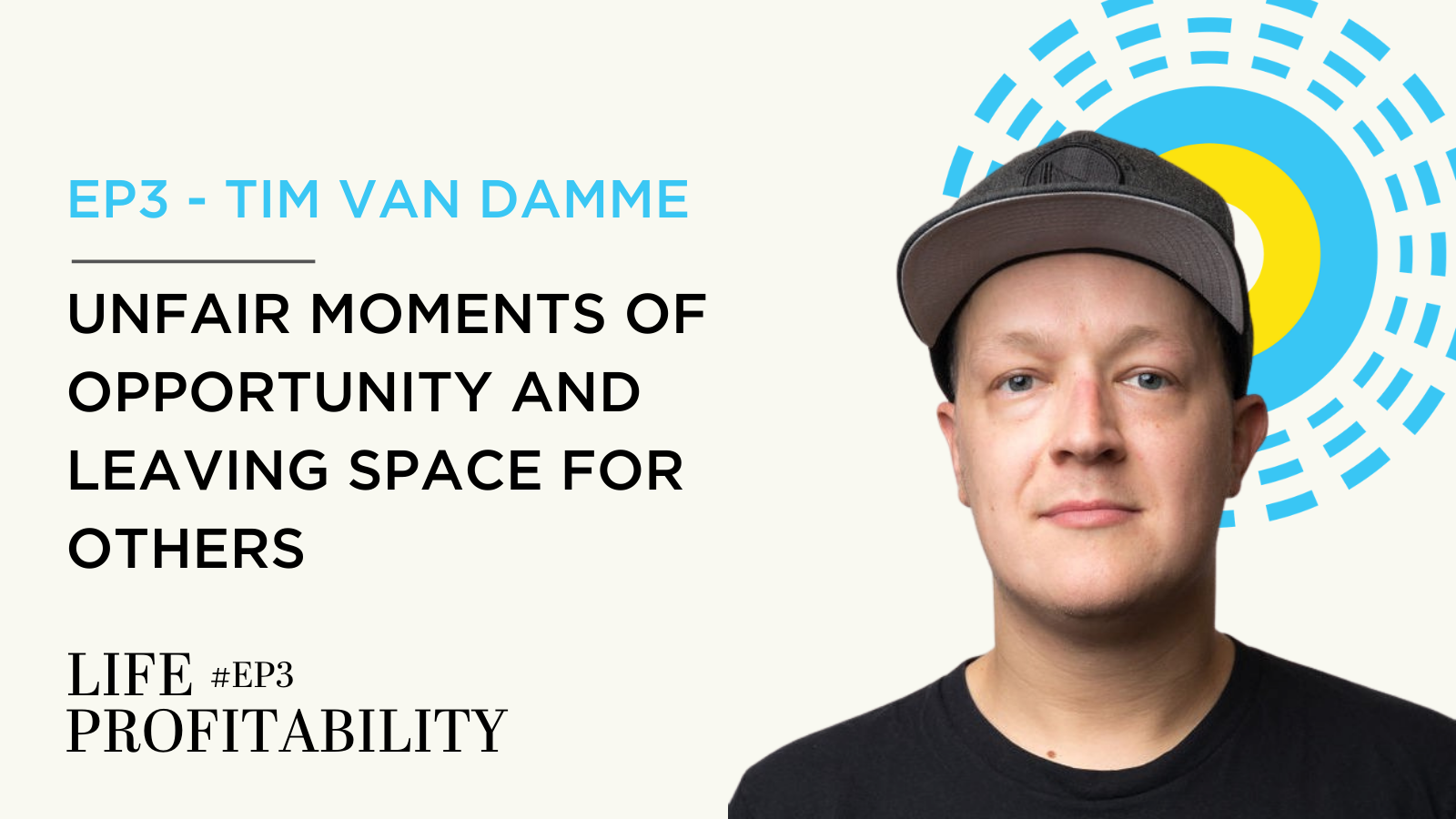Summary
Tim Van Damme is a digital designer who has worked with some of the best known tech companies in the business. Sometimes known as Tim is the Principal Product Designer at Abstract and in the past has worked with Instagram, Facebook, Gowalla, and Dropbox. In this episode, Adii and Tim discuss how Tim got his start, his evolution from an adequate designer to a team player, unfair moments of opportunity, leaving space for others, and setting an example for children through work/life decisions.
Evolving as a Designer
Moving from startup to startup, from Belgium to the United States and back again to Belgium, Tim got his start in digital design as a freelancer. Not having gone to school for design, Tim is self taught. He landed most projects by reaching out to people over DM and doing unsolicited redesigns. This got his foot in the door.
Unfair Moments of Opportunity
Tim feels his career is paved with unfair opportunities that have been thrown at him, and that a lot of it has just been a good bit of luck. And eventually, as his career progressed, he found himself being “highly overrated.”
“I think I had a lot of one hit wonders that all came down to being at the right place at the right time and that’s what bothered me. I wanted to show more consistency in the work that I do and the colleague that I am.”
Becoming a Team Player
Tim was one of the first Instagram users and also worked for the company. Originally, Instagram started out with a small batch of users, mostly designers who would work as taste-makers for the platform. It started out with a very small team, but as it grew Tim discovered he didn’t know how to collaborate well in a group setting.
When he began to feel overrated, he not only set out to become an “adequate” designer, but also a good team player. He did so by setting aside ego, and joined companies and teams with the purpose of picking up skills he felt he was lacking.
In general, Tim finds bigger companies allow for a lot of learning while small ones require you bring everything you have and wear a lot of hats—allowing for little space to learn and grow.
Leaving Space for Others
“The design industry is based on people helping out people… It is a community where you give as much as you get, or more.”
As these unfair moments began to arise, and Tim felt he was more than comfortable in his position already, he began declining job offers in an effort to leave space for other up-and-coming designers.
He is more than willing to work for what he gets now, rather than being handed opportunities entirely based on name recognition. It was time to start sharing and helping others break in the industry.
Social Media, Mentoring, and Communication
Over the last few years, there has been a shift in the tone of Twitter, and social media in general. A lot more of it is about self-promotion in the design community now, and it is not as informal or conversational.
Along with social media, the industry itself has matured. It used to be a bunch of hobbyists doing it as a passion, and now it has become a job that is taken seriously. This fact makes it harder to reach out to other designers, especially well-known figures in the industry.
“Helping people out can be as easy as responding to DMs, replying to an email… It’s a small effort, which has a massive impact on the lives of others. One email can change a person's entire career.”
Making time to help others--especially in the design industry--is very important to Tim, and he is always trying his best to do so. This includes presenting himself as approachable and following through when approached. A portion of how he does this is simply by responding to DMs or emails with questions or comments from other designers.
Setting an Example, Putting Family First
Tim doesn’t want to be a multi-millionaire if he’s going to be an asshole, he says. He especially doesn’t want to set that example for his kids.
Being a parent has shifted his entire life. Not so coincidentally, after his first daughter was born was when he realized he was not a great team player. He also realized work wasn’t everything, and how important empathy is. He learned to do more with less time, focus on what is important, and cut out a lot of distractions.
Rather than shielding his children from the world, Tim deeply believes in teaching them about both the good and the bad parts of it, and adjusting lessons as the world changes.
Every big change takes at least a generation, Tim says, but you only truly have control over what you put out into the world, and patience. In the meantime, Tim will keep doing the work, mentoring people in the industry, saving space, and committing time to his family. Whether it be managing, mentoring, or learning to code, Tim is ready to be flexible with whatever life throws at him next. All he can truly ask for is stability and family.

